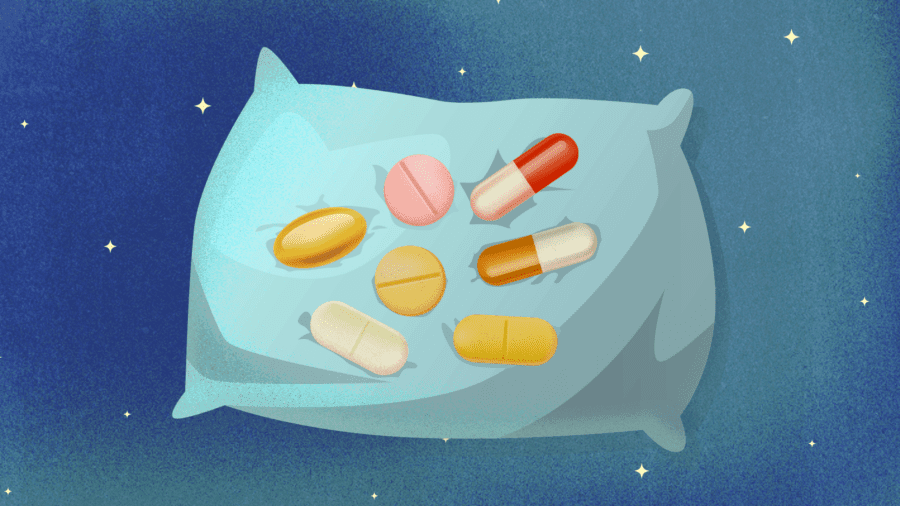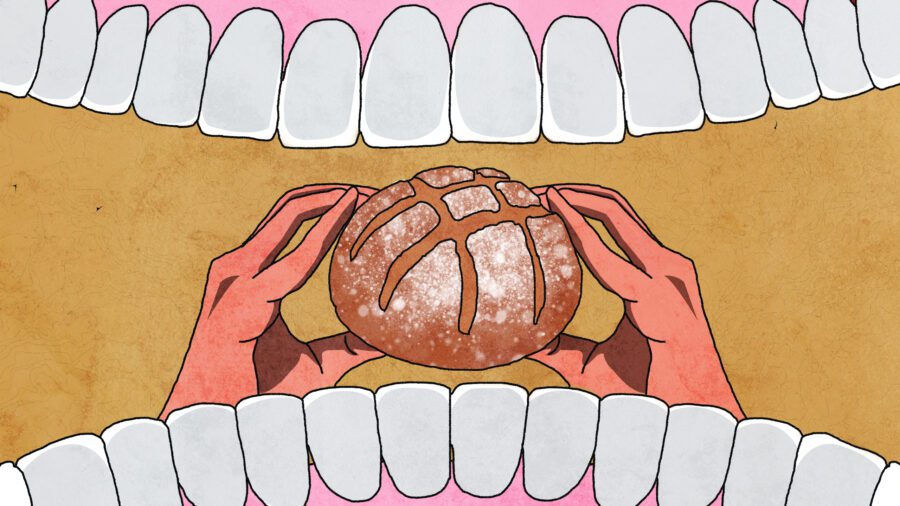
Here’s Your Healthy Excuse for Eating More Chocolate
What’s going through your brain when you take a delicious bite of some chocolate?
If you’re like most of the world, your brain is being flooded with endorphins as you indulge in a tasty sweet treat, but why do you also feel guilty about eating it?
According to Johns Hopkins Medicine, about 45 percent of women in the U.S. claim they have regular chocolate cravings, with almost 90 percent of female college students reporting the same. Research also shows that, unlike men, women feel a substantial amount of guilt after indulging in their chocolate cravings, and many of them abstain from eating any chocolate at all despite their cravings.
This type of complicated relationship with chocolate — or any food for that matter — can be harmful in a number of ways.
But what if you didn’t have to feel guilty about eating chocolate? What if, instead of forcing yourself to abstain entirely from the world’s most delicious delicacy, you allowed yourself a tasty chocolate treat in moderation because it actually has health benefits? What if you didn’t need to feel guilty the next time you eat a bit of chocolate?
Well, here’s the good news about that — you can! We’re here to show you all the ways in which eating chocolate can positively affect your health and why you should indulge every now and then.
The Facts and History of Chocolate
You probably already knew that chocolate comes from the seeds of a cacao pod that grow on cacao trees and isn’t actually sweet in its natural form. In fact, most milk chocolates only contain about 10-30 percent cacao solids and are predominantly made of vanilla and sugar. As a result, most milk chocolates do not provide any real health benefits.
Dark chocolate, however, contains anywhere from 70-90 percent cacao solids and is where the real nutrients are.
The scientific name for the cacao tree is Theobroma Cacao, and it has grown in tropical rainforests for thousands of years. In fact, a drink made with cacao was called “the drink of the gods” by the Mayans and was so popular that cacao was used as a currency and seen as more valuable than gold until the cultivation of the tree was restricted.
Eventually, the Aztecs picked up on this tasty chocolate beverage that the Mayan people had been enjoying for hundreds of years and incorporated it into their own lives before the Spanish colonization of Mexico, at which point it was spread to the rest of the world. Chocolate was enjoyed as a hot liquid beverage until 1847, when the British company Fry and Sons introduced the concept of eating chocolate after combining cocoa butter, sugar, and chocolate liquor.
However, it wasn’t until 1875 when Swiss entrepreneur Daniel Peter finally perfected a recipe for milk chocolate after eight years of repeated attempts.
Nutritional Facts of Dark Chocolate
Eating dark chocolate gives you a decent mix of nutrients, including magnesium, zinc, iron, phosphorus, and copper. And one-quarter cup of dark chocolate, or about two large squares, contains the following:
- 142 calories
- 2g of protein
- 10g of fat
- 15g of carbohydrates
- 3g of fiber
- 11g of sugar
- 0mg of cholesterol
- 0mg of sodium
As you research the health qualities of chocolate and the effects of eating it, one thing becomes clear: the purer and darker the chocolate, the greater the health benefits. One important thing you might have noticed, however, is that even dark chocolate is relatively high in calories, so moderation is key as always.
The Dark Side of Dark Chocolate
Before we get into all the ways in which eating chocolate can benefit your health, it’s equally important to understand the negatives and the risks. Unfortunately, no matter how many positives a food offers you, you still need to enjoy it in moderation.
Weight Gain
Due to its high caloric value, you should have about one ounce of dark chocolate no more than three times per week. People who are trying to lose weight or keep weight off should limit their chocolate intake as much as possible. When in doubt, always check the label of your favorite chocolate bar for any added ingredients that may detract from any health value, such as caramel or marshmallows.
Bone Health
Even the purest dark chocolate still has a relatively high sugar content, and as a result, too much chocolate can have a negative impact on dental health and lead to tooth decay over time. There is also evidence to suggest that overindulgence in chocolate can lead to poor bone health and even osteoporosis. In a study, researchers found that older women who consumed chocolate every day had lower bone density and overall strength.
Metals
Additionally, some cocoa powders, chocolate bars, and cacao nibs may contain high levels of cadmium and lead, which are known to be toxic to the kidneys, bones, and various body tissues. ConsumerLab actually tested 43 popular chocolate products in 2017 and found that almost all cocoa powders contained more than 0.3 mcg of cadmium per serving, which is the maximum amount recommended by the World Health Organization.
Now that you’ve heard the bad news about why chocolate still needs to be enjoyed in moderation, you’re ready to hear all the benefits that eating chocolate can have on your health.

The Greatness Mindset
Learn the secrets of some of the greatest minds in the world. Unlock the power of your mind and live your best life today.
Learn MoreThe Good News for Chocolate Lovers
Dark chocolate contains many important antioxidants, and the most beneficial one is a flavanol called epicatechin. These flavanols are compounds found in all kinds of plants, including cacao pods, that combat inflammation and protect your body against cell damage.
Heart Health
In addition to antioxidants like epicatechin, other antioxidants found in dark chocolate have been found to reduce blood pressure and lower the risk of blood clotting while increasing circulation to the heart. As a result, this lowers the risks of stroke, coronary heart disease, and death from heart disease.
The endothelium, the lining of arteries, can be stimulated to create nitric oxide by the flavonoids in dark chocolate. Nitric oxide has several roles, one of which is to tell the arteries to relax, which lowers the resistance to blood flow and lowers blood pressure.
Dark chocolate consumption can also lower numerous significant heart disease risk factors, including elevated cholesterol. A study revealed that consuming dark chocolate with the flavanol lycopene added dramatically reduced levels of triglycerides, LDL (“bad”) cholesterol, and total cholesterol. Some LDL cholesterol variants have a higher propensity to oxidize, which occurs when they come into contact with free radicals in your body.
The LDL particle itself becomes reactive due to oxidation and is capable of causing damage to various tissues, including the lining of the arteries in your heart.
It makes sense that cocoa reduces LDL, which is prone to oxidation, since it is loaded with potent antioxidants that enter the bloodstream and shield lipoproteins from oxidative damage.
Dark chocolate’s flavanols can also lessen insulin resistance, a key risk factor for illnesses including diabetes and heart disease.
Immune Health
Flavonols prevent the immune system from overreacting and lessen oxidative stress, an imbalance brought on by cells fighting off free radicals and a major contributor to a wide range of illnesses. Who knew that moderated dark chocolate consumption could actually keep you from getting sick?
Skin Protection
Bioactive compounds found in dark chocolate may even benefit the health of your body’s largest organ: your skin. These flavanols can boost skin density and hydration, reduce the risk of UV damage, and promote blood flow to the skin.
The bare minimum of UVB photons needed to make skin red for 24 hours after exposure is known as the minimal erythemal dose (MED). According to studies, after consuming high-flavanol dark chocolate or cocoa for 12 weeks, MED can rise and even double. As a result, your skin is more shielded from the sun.
Next time you plan a trip to the beach or spend a long period of time in the sun, consider indulging in some extra dark chocolate in the weeks leading up to your trip. Just remember that dark chocolate should never replace sunscreen and is only meant to add additional protection to your regular skincare routine.
Brain Health
The benefits of eating dark chocolate just keep pouring in, as it may even improve and protect brain function!
According to studies, young individuals who consume high flavanol chocolate have better blood flow to their brains. This could be the reason why regular use of cocoa appears to enhance language learning, attention, and memory. Additionally, cocoa flavonoids may help older individuals with mild cognitive impairment maintain cognitive function and lessen the likelihood that dementia may develop.
Cocoa also includes stimulants like caffeine and theobromine, which may be a major factor in how it temporarily enhances cognitive function.
It’s worth noting that dark chocolate does contain caffeine, which some people may be particularly sensitive to. Some people also may encounter acid reflux or migraines after consuming chocolate, so start off easy if you’re new to dark chocolate.
As a general rule, the higher the cocoa content of the chocolate, the more benefits the flavanols contain. You should look for dark chocolate that contains at least 70 percent cacao content to ensure you’re reaping all the benefits that dark chocolate can provide.
Join In 200 Million+ On The Journey to Greatness
There’s No Need to Feel Guilty
At the end of the day, one of the most important things you can change about your relationship with chocolate is to stop treating it like a guilty pleasure.
Instead, use it as a tool to improve your health by eating the right kinds of chocolate and enjoy it in moderation. The results of a study conducted in 2014 showed that people who associated eating chocolate in celebration had more success with weight management, while those who associated it with guilt were more likely to have less success with weight management, as well as a lower quality of life.
To combat the negative feelings associated with eating chocolate, you have to stop thinking of it as a taboo.
You are far more likely to experience increased cravings for food you have labeled totally off-limits, followed by guilt when you finally do break down and indulge. You should never feel guilty about craving any food, whether it’s candy or fruit. Cravings are a natural part of human existence, so it does no good to be hard on yourself for experiencing natural human cravings.
Try to change your relationship with chocolate instead of avoiding it completely. Indulge in a sweet treat with intention and purpose, and savor it when you do.
Don’t sit on the couch with one hand in a bag of Hershey’s Kisses as you eat mindlessly, but instead save yourself a special square of dark chocolate for after your meal. Give yourself something to look forward to, and feel content about indulging in a tasty treat that improves brain function and skin protection!
Willy Wonka Was Onto Something…
Chocolate has a rich and lengthy history, and it’s come an incredibly long way since its days as a grainy, bitter beverage enjoyed by the Aztecs. What was once considered currency in ancient civilization has turned into one of the world’s most favorite desserts.
As it turns out, you don’t need to feel guilty about giving into chocolate anymore, so long as you avoid eating an entire bag in one sitting!
Just like many other things in life, moderation is key. When you reassess your relationship with chocolate and avoid processed sugars and added ingredients, you are benefiting your body and mind — not to mention making your taste buds happy!
Greatness Authors
Greatness Authors is a collection of writers, thinkers, curiosity experts, and students of the world who are committed to bringing you the most up-to-date, impactful, and inspiring information surrounding Greatness topics.

Do You Have to Be a Morning Person to Be Successful? Here’s What Both Sides Have to Say

9 Reasons You’re Tired All the Time & How to 10x Your Energy

How to Have a Healthy Romantic Relationship Even if You Share Different Beliefs

The 7 Best Vitamins to Naturally Promote Better, Uninterrupted Sleep According to Shawn Stevenson

The Science of Forming Healthy Habits & Letting Go of Bad Ones, According to Author James Clear










